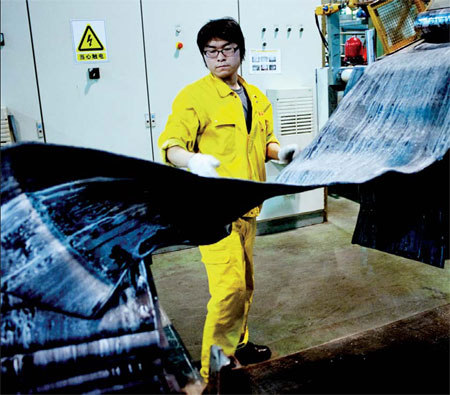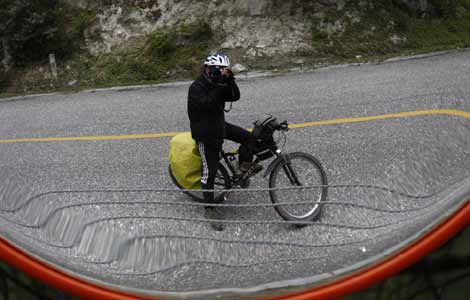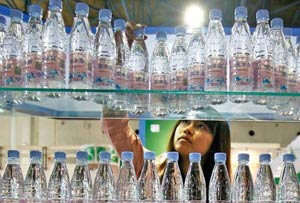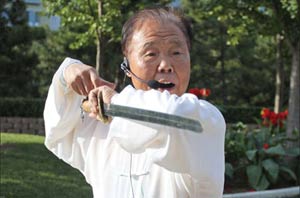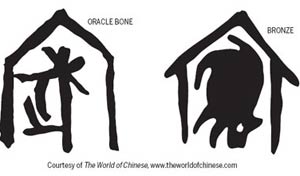New tire rule may reduce rivals
Updated: 2011-10-07 10:15
By Zhong Nan and Li Aoxue (China Daily)
|
|||||||||
|
Chinese tire-makers are seeking closer ties with foreign firms to improve their standards. Provided to China Daily |
Chinese tire-makers will be put to the test to meet new eu quality controls
With a new quality control regulation by the European Union looming over China's tire market, Chinese tire-makers are becoming quick studies in joint ventures to remain competitive and avert being pushed out of the EU.
Following a trend set by China's automakers, the nation's manufacturers of tires are trying to learn as much as they can from their Western competitors to maintain their substantial foothold in Europe's tire market.
The EU, China's second-largest market for tires in the world (the United States is No 1), recently introduced a new rule requiring all tires manufactured after July 2012 and sold in the EU beginning in November 2012 to bear a quality label. The regulation requires all manufacturers to display trademarks, tire dimensions, load index, wet grip, noise levels, speed ratings and other technical specifications on each tire for sale in the EU. Tires that are not fuel-efficient or are high-noise performance cannot be exported to the EU.
China exported approximately 40 percent of its tires in 2010; 15 percent of the tires were shipped to Europe. The nation shipped about 116 million units of tires for cars and trucks to the EU for approximately 3.54 billion euros ($4.72 billion) last year, according to the China Rubber Industry Association.
"The EU Commission has raised the import standard for Chinese tires, which to a certain extent has created tough challenges to domestic enterprises, whose products need to be further improved to meet the EU requirements," says Fan Rende, chairman of the China Rubber Industry Association.
But several of China's tire-makers are responding quickly. Shandong-based Triangle Group signed with German company Lanxess in August to create higher quality tires. Lanxess is a chemicals group that specializes in rubber and plastics.
It has also worked to maintain its relationships with US companies Goodyear Tires and Caterpillar Inc to develop new tire products. The Triangle Group made 1.5 billion euros in operating revenue in 2010 with 40 million units sold. Around 30 percent of its products were exported to the EU market last year.
Shanghai-based Double Coin Holdings, China's first State-owned tire company, is making a bigger push to work with France's Michelin on new tire technology, according to company officials.
"The joint venture strategy with Michelin could help us remain strong in the EU market," says Yue Chunchen, general manager of Double Coin Group.
Within the next two years, Double Coin Holdings will infuse about 77.4 million euros into Michelin Finance and Michelin (China) Investment Co Ltd, increasing its stake in the joint venture by 40 percent. Double Coin will be able to use the French technology in producing tires.
"Chinese tire producers have no choice but to act quickly," says Ding Yuhua, president of Triangle Group. "If we don't improve our product quality and build our market confidence to a stable level, Chinese companies won't stand a chance to step in the EU market again."
"Tire-makers from developed nations know how to pass all those requirements that the new EU label regulation stipulates," says Feng Yanhui, a professor at the Beijing University of Science and Technology.
She says Chinese manufacturers must improve product quality to not only improve the image of Chinese tire brands but also to reduce long-term risks.
Yue says the financial crisis has made the EU more cautious about Chinese tires. But Fan of the China Rubber Industry Association says the EU regulation will hurt a number of small Chinese tire enterprises because they will be overlooked by foreign buyers.
"Although it is a hard test for all Chinese tire-makers, small enterprises will lose their market access to the EU market because they are incapable of making high-quality tires. Only large Chinese companies have a chance to make gains," Fan says.
